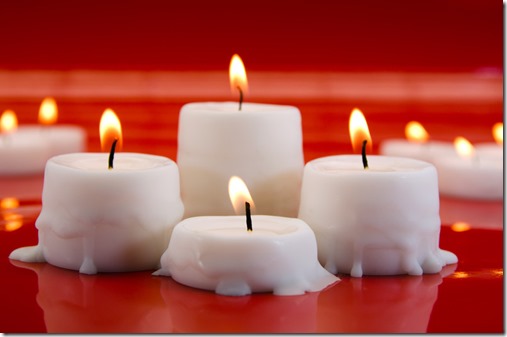
Advent Waiting
 Waiting always has a future tense. Something is going to happen, but not yet. Without this sense of something approaching there is no waiting.
Waiting always has a future tense. Something is going to happen, but not yet. Without this sense of something approaching there is no waiting.
The thing that is on the way could be bad; this kind of waiting is called dread. When my brothers and I were acting up and wouldn’t listen to Mom she would say, “Just wait until your father gets home.”
Way to ruin a kid’s afternoon. We’d then spend the rest of the afternoon behaving ourselves, like we should have done in the beginning, in the hope that by the time Dad got home we might have swayed Mom to just let it slide.
It never worked, so mostly we just played nicely because the dread of what was coming kind of took the fun out of misbehaving.
Much better to wait in hope. Hope is when the thing you are waiting for is a good thing.
Hope comes in two flavors. In one the flavor fades over time, like a soft drink that been opened and left for days. In the other time enhances the flavor, like a good wine. The difference is all about confidence.
When you are hoping that the good thing will happen but aren’t sure, time erodes confidence. The prisoner of war waits in hope for release or rescue. At first that hope may be high because they have some confidence that one or the other will happen. “They can’t keep me here forever.” “My superiors will work as hard as they can to win my release.” “They will come for me.” “They won’t forget about me.”
And so they wait. As hard as it may be, they wait, fueled by their hope, by their confidence in their fellow soldiers, their officers, their country.
The longer time passes, however, confidence starts to erode. “No way they’ve forgotten me.” “Something has happened that has delayed them, but they’ll come.”
The longer they wait, the more they begin to wonder. Enough time passes, they wonder no more. Maybe there is a flicker of hope somewhere in their subconscious, but not much. It gives way to acceptance. Or despair. Not necessarily in that order.
This was the kind of “waiting” that the Israelites of the first 1st century had been doing. After over 400 years of waiting for Yahweh to forgive them and return to them and restore their kingdom, most had lost confidence in him.
He’ll never return. We’ll always be slaves. We’ll always be foreigners in our own land, part of an empire but never allowed to be citizens.
Some gave up waiting but not hope. They thought that if they picked up swords they could force God’s hand and he would finally rescue him.
It is never good to try to force God’s hand. Ask Judas.
But there is another kind of waiting in hope, and that is the kind when you know the thing is going to happen, you just don’t know when. Then the passage of time doesn’t erode confidence, it increases anticipation and excitement.
When I was a young kid and didn’t know much about time. A year seemed like forever and a month just shy of that. I didn’t know when Christmas would come, I just knew that it would. When lights and trees would go up, when presents would appear, when Grandmother’s fruitcake would arrive in the mail from Mississippi, I knew it was getting close.
And each day brought it closer, until finally I was told it would happen in the morning and for the only night of the year I couldn’t wait to go to bed and be kept awake by the prospect of dawn.
This is Christian waiting.
This is the waiting of Advent.
Come, Lord Jesus.
Photo by © Can Stock Photo / fffranz
 I am a lifelong student of the Bible, and have been a pastor for over twenty-five years. My desire through this blog is to help people see things in the intersection of Scripture and real life that they might have missed. The careless handling of the Bible is causing a lot of problems in our churches and our culture--and is literally turning people away from the church, and, sometimes, God. I hope to treat Scripture with the respect it deserves, and, even if you don't agree with what I say, give you some insight.
Feel free to leave a comment. I promise to respond to you. All I ask is that you be respectful in your comments.
I am a lifelong student of the Bible, and have been a pastor for over twenty-five years. My desire through this blog is to help people see things in the intersection of Scripture and real life that they might have missed. The careless handling of the Bible is causing a lot of problems in our churches and our culture--and is literally turning people away from the church, and, sometimes, God. I hope to treat Scripture with the respect it deserves, and, even if you don't agree with what I say, give you some insight.
Feel free to leave a comment. I promise to respond to you. All I ask is that you be respectful in your comments. 
Connect with Me